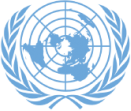Mr. Chairman,
I congratulate you and other members of the Bureau on your unanimous election. You will have my delegation’s full support in the discharge of your responsibilities.
I align my statement with those delivered by Egypt on behalf of the Group of 77 plus China, by Malawi on behalf of the LDCs, and by Paraguay on behalf of the LLDCs.
Mr. Chairman,
As we start business of the Second Committee this year, it is important to note the signals that we have been slow in the implementation of the 2030 Agenda for Sustainable Development. This is a clear indication of time lag; a concern Nepal has been raising consistently. We must not fail to learn the lessons from the delayed implementation of MDGs. We must deploy all within our power to give momentum to translate the commitments into meaningful results on the ground.
As the guest panelist, Prof. Homi Kharas, eloquently presented the other day, the scenario of achieving the SDGs appears grim. It is not a question of a few hundred million people living in the LDCs that will lag behind, his statistical presentation raises concerns in many other countries too. It is clear that SDGs will test our commitment, will and ability to make the world a better place to live.
Mr. Chairman,
The objective of “leaving no one behind” captures a desire to create a peaceful, prosperous and secure world, which is not possible to attain when millions of people continue to live in poverty. The frustration resulting from poverty, hunger, illiteracy and exclusion breeds anger, conflicts, instability and even terrorism. Inclusive implementation of SDGs is therefore a worthy responsibility of all to pursue in earnest. While national ownership and leadership is a must for such an onerous task, a robust international partnership remains critical for its success. This is more so for countries in special situation, particularly LDCs, LLDCs and SIDS as they are the neediest and require our immediate and special attention.
Let’s bring them to the front and center of our discussions, right here in the Second Committee this year, to identify the gap between our promises and the reality on the ground. The same spirit should run through all processes and mechanisms, while implementing the 2030 Agenda, and other internationally agreed development programs of action.
Nepal attaches great importance to the ongoing UNDS repositioning process in line with the relevant UNGA resolutions. We are confident that new generation of country teams with reinvigorated RC system will carry the spirit of the reform to better serve Member States to implement the 2030 Agenda. At the same time, it is important to respecting national policy space, leadership and ownership.
Nepal believes that implementing the 2030 Agenda will not only promote multilateralism but also strengthen the work of the United Nations as a whole. As the plan of action for people, planet and prosperity, SDG’s inclusive implementation will address many of the pressing issues of our time.
Mr. Chairman,
The world today, for sure, is better connected than ever. Globalization has brought both opportunities and challenges. However, when it comes to equitable sharing of benefits, globalization is yet to be inclusive. As the global economic growth continues to rise, inequality within and among nations has widened significantly. Elements of inclusion, equity and social justice appear to be missing in the entire process. Opportunities and resources are being concentrated in a few while leaving large section subject to marginalization. Uneven development is reflected in continuous exclusion and deprivation of significant portion of the world population.
This presents an unsustainable trend, which is bound to exacerbate by the unfolding technological revolution creating a large segment of “irrelevant people” that cannot add value in the market of fourth industrial revolution. Marginalization of a sizeable section of population will be a recipe for disaster. Such a situation is not only morally hollow but also economically inefficient and socially destabilizing.
Mr. Chairman,
The impact of climate change on mountain and small island countries poses an existential threat. It is an irony that we bear the brunt for which we contributed the least. A matching and robust response is needed. A climate justice that respects the principle of common but differentiated responsibilities and respective capabilities is a must. To make this happen, the Paris Agreement must be implemented in its entirety and good faith in synergy with the 2030 Agenda. International cooperation for adaption and mitigation should be ensured through more accessible climate finance to the neediest countries.
Mr. Chairman,
Lastly, turning to my own country, Nepal, I am happy to share that home-grown and nationally-led peace process has concluded successfully ending the prolonged political transition. The newly elected Government has set a vision for 'Prosperous Nepal and Happy Nepali' and remains fully committed to fulfill people's aspiration of socioeconomic transformation and sustain peace and stability.
Implementation of the 2030 Agenda is our national priority and is integral to our graduation from the LDC category. We anticipate an enhanced, predictable and continued international support for a smooth and sustainable graduation process.
To conclude, Mr. Chairman, I reiterate that it is a common responsibility of all to place the weakest and most vulnerable countries at the center of our action. This Committee has an important role to play. Nepal will continue to play its part in making this Committee more visible towards addressing the issues of the neediest countries.
I thank you.


